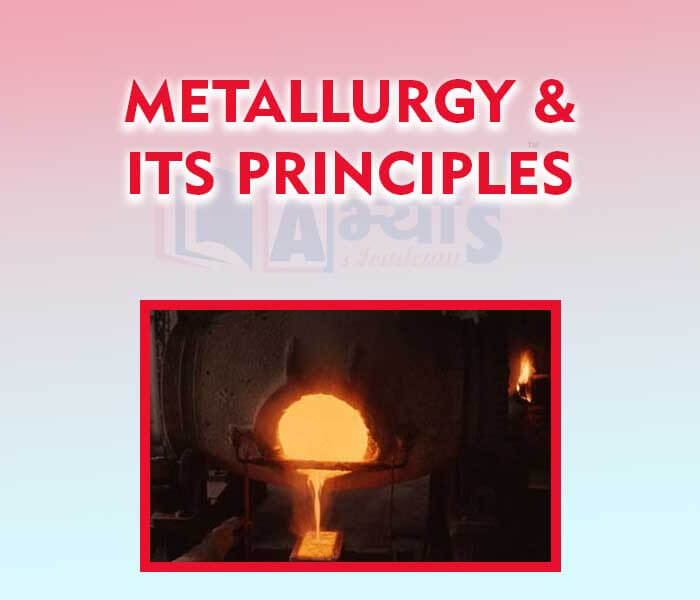Metallurgy and its Principles







Metallurgy and its Principles
METALLURGY: The process of extracting metals from their ores and refining them for use is known as metallurgy. In other words, the process of obtaining a metal from its ores is called metallurgy of the metal.
Principles of metallurgy: The extraction of a metal from its ore depends upon the reactivity of the metals.
Which of the following are correct : (a) The extraction of a metal from its ore depends upon the reactivity of the metals. (b) The process of extracting metals from their ores and refining them for use is known as metallurgy. (c) The process of obtaining a metal from its ores is called metallurgy of the metal. | |||
| Right Option : D | |||
| View Explanation | |||
Metal at top being more reactive are found in ______ state | |||
| Right Option : B | |||
| View Explanation | |||
Which of the following are correct: (a) Metals like gold, silver, platinum are least reactive. (b) Metals like Potassium, Sodium, Calcium,etc. are highly reactive. (c) Metals like zinc, lead, etc are moderately reactive. | |||
| Right Option : D | |||
| View Explanation | |||
Students / Parents Reviews [10]
It has a great methodology. Students here can get analysis to their test quickly.We can learn easily through PPTs and the testing methods are good. We know that where we have to practice

Barkha Arora
10thMy experience with Abhyas is very good. I have learnt many things here like vedic maths and reasoning also. Teachers here first take our doubts and then there are assignments to verify our weak points.

Shivam Rana
7thMy experience with Abhyas academy is very good. I did not think that my every subject coming here will be so strong. The main thing is that the online tests had made me learn here more things.

Hiya Gupta
8thA marvelous experience with Abhyas. I am glad to share that my ward has achieved more than enough at the Ambala ABHYAS centre. Years have passed on and more and more he has gained. May the centre flourish and develop day by day by the grace of God.

Archit Segal
7thAbout Abhyas metholodology the teachers are very nice and hardworking toward students.The Centre Head Mrs Anu Sethi is also a brilliant teacher.Abhyas has taught me how to overcome problems and has always taken my doubts and suppoeted me.

Shreya Shrivastava
8thIt was a good experience with Abhyas Academy. I even faced problems in starting but slowly and steadily overcomed. Especially reasoning classes helped me a lot.

Cheshta
10thBeing a parent, I saw my daughter improvement in her studies by seeing a good result in all day to day compititive exam TMO, NSO, IEO etc and as well as studies. I have got a fruitful result from my daughter.

Prisha Gupta
8thMy experience was very good with Abhyas academy. I am studying here from 6th class and I am satisfied by its results in my life. I improved a lot here ahead of school syllabus.

Ayan Ghosh
8thIt was good as the experience because as we had come here we had been improved in a such envirnment created here.Extra is taught which is beneficial for future.

Eshan Arora
8thOne of the best institutes to develope a child interest in studies.Provides SST and English knowledge also unlike other institutes. Teachers are co operative and friendly online tests andPPT develope practical knowledge also.
